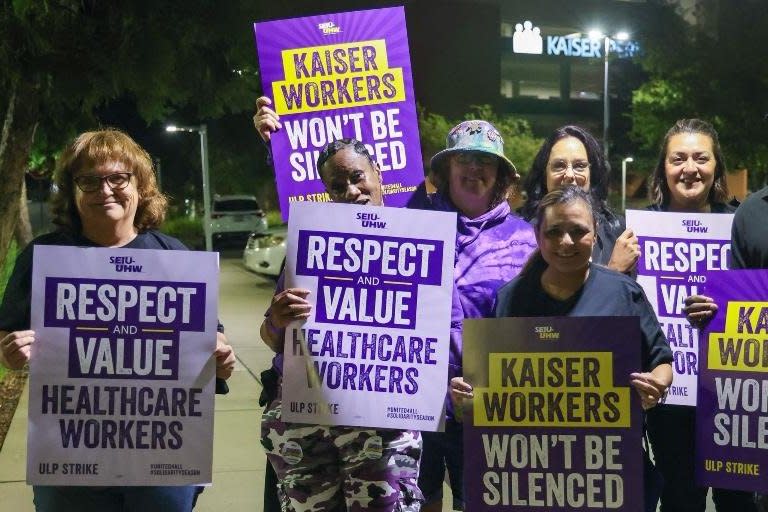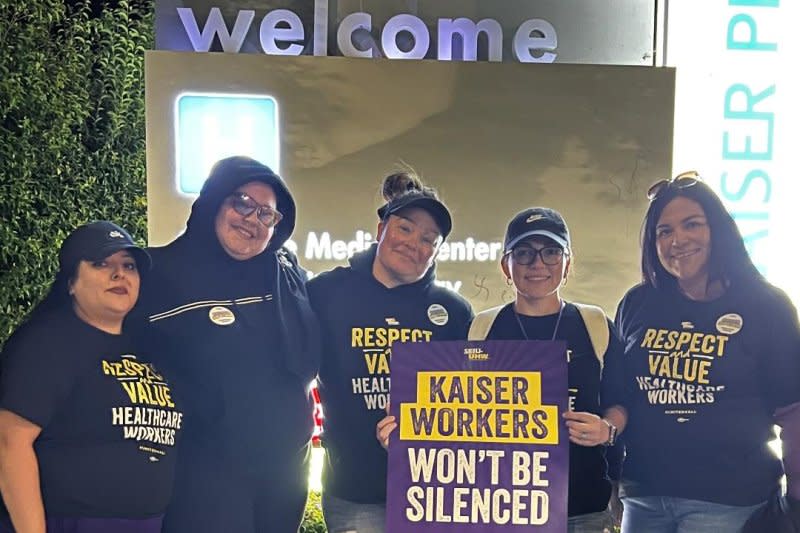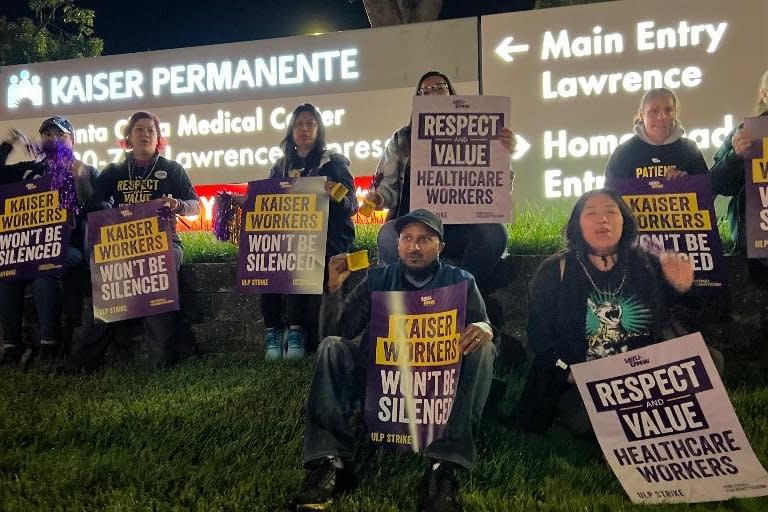75,000 Kaiser Permanente workers strike hundreds of facilities in 5 states, D.C

Oct. 4 (UPI) -- A three-day strike by roughly 75,000 Kaiser Permanente health system workers began Wednesday morning as workers seek better pay, retiree medical plans and job protections against subcontracting and outsourcing.
It's the largest healthcare strike in U.S. history. Strikes are happening at hundreds of Kaiser facilities across California, Colorado, Oregon, Washington, Virginia and Washington D.C.
Doctors and nurses are not striking so Kaiser Permanente hospitals and emergency departments will remain open during the strike, according to the company.
"Kaiser executives are bargaining in bad faith over solutions to the Kaiser short-staffing crisis, and the safety of workers and patients is on the line," SEIU United Healthcare Workers West said in a statement on the union website.
The union said frontline healthcare workers have repeatedly raised concerns with Kaiser executives about "how the Kaiser short staffing crisis is harming workers and patients but they aren't listening."

In a statement in September, fees and benefit supports specialist Audrey Cardenas Loera said, "Healthcare workers see how Kaiser patients are forced to wait unsafe lengths of time for cancer screenings, room assignments, test results, primary care appointments, X-rays, surgeries, waiting in emergency rooms, and more. We simply want our patients to be safe and get the care that they deserve."
"We're committed to our employees," Michelle Gaskill-Hames, regional president of Kaiser Foundation Health Plan and Hospitals of Southern California and Hawaii, said in a statement.

"We are committed to supporting them with fair wages, great benefits, their own growth and development. We are equally committed to our members and making sure that healthcare is affordable. We want to deal with the affordability crisis as well, and so all of those things are coming to bear as we work our way through to make sure we continue to take great care of our employees and also patients and our members."
She asserted that the main issue in the strike are wages, not staffing, but acknowledged that, "It has really been tough across the country in terms of staffing shortages associated with the great retirement, the great burnout."
SEIU United Healthcare Workers West said the strike may be "the only way to address Kaiser's unfair labor practices and secure a strong contract with the pay and benefits needed to retain world-class workers and attract new workers to ensure quality patient care."
A Kaiser Permanente statement said, "We are disappointed that some unions have called on employees to participate in a labor strike. As a result of this strike, we may experience high call volumes resulting in longer than usual wait times. We have contingency plans in place to help ensure you continue to receive safe, high-quality care during this period."
In a 2022 survey of frontline healthcare workers, the workers reported high stress and burnout affecting their health.
The survey of 5,000 healthcare workers commissioned by the SEIU-UHW and Joint Employer Education Fund and done by Mental Health America showed "workers report regularly feeling stress (91%), anxiety (83%), exhaustion/burnout (81%) and overwhelmed (77%)."
According to the union, Kaiser made $3 billion in just the first six months of 2023, despite legally being a nonprofit organization, while the Kaiser CEO made more than $16 million in 2021.
SEIU-UHW said Kaiser has investments of $113 billion in the U.S. and abroad in fossil fuels, casinos, for-profit prisons, alcohol companies, military weapons and more.

